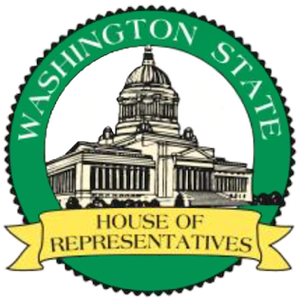The Washington State House Regulated Substances and Gaming Committee (WA House RSG) is charged with considering issues relating to the regulation and taxation of alcohol, tobacco, vapor products and cannabis, as well as product safety and access, and issues relating to the regulation and oversight of gaming, including tribal compacts.
Executive Session
- HB 1453 - “Providing a tax exemption for medical cannabis patients.”
- HB 1563 - "Concerning arrest protections for the medical use of cannabis.” (added Jan 27)
Public Hearing
- HB 1614 - “Concerning the home cultivation of cannabis." (added Jan 27)
- HB 1641 - "Addressing public health challenges of high-potency cannabis products." (added Jan 27)
- HB 1642 - “Regulating the sale of cannabis concentrates.” (added Jan 27)
